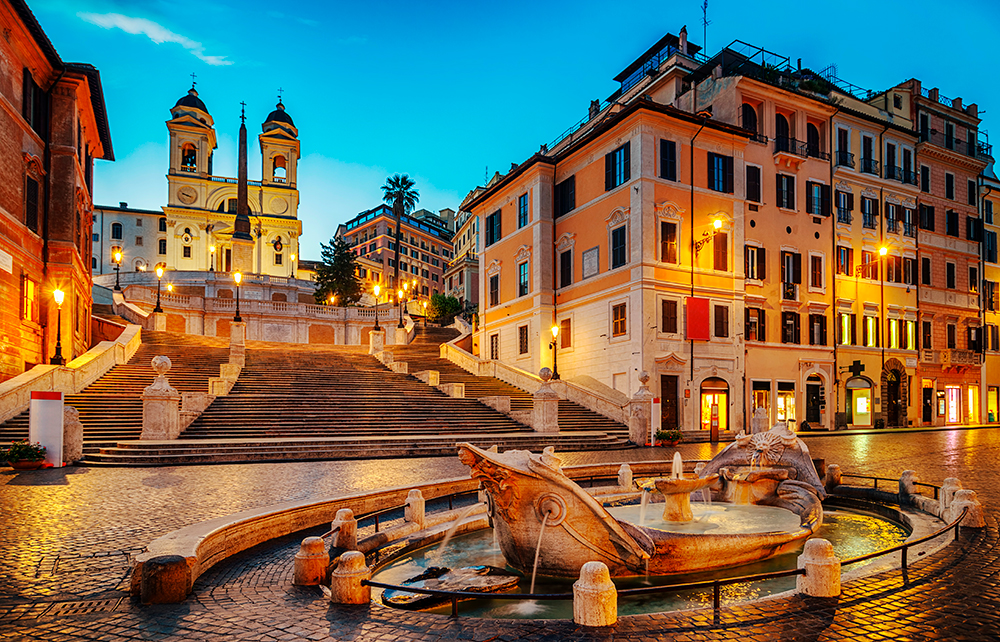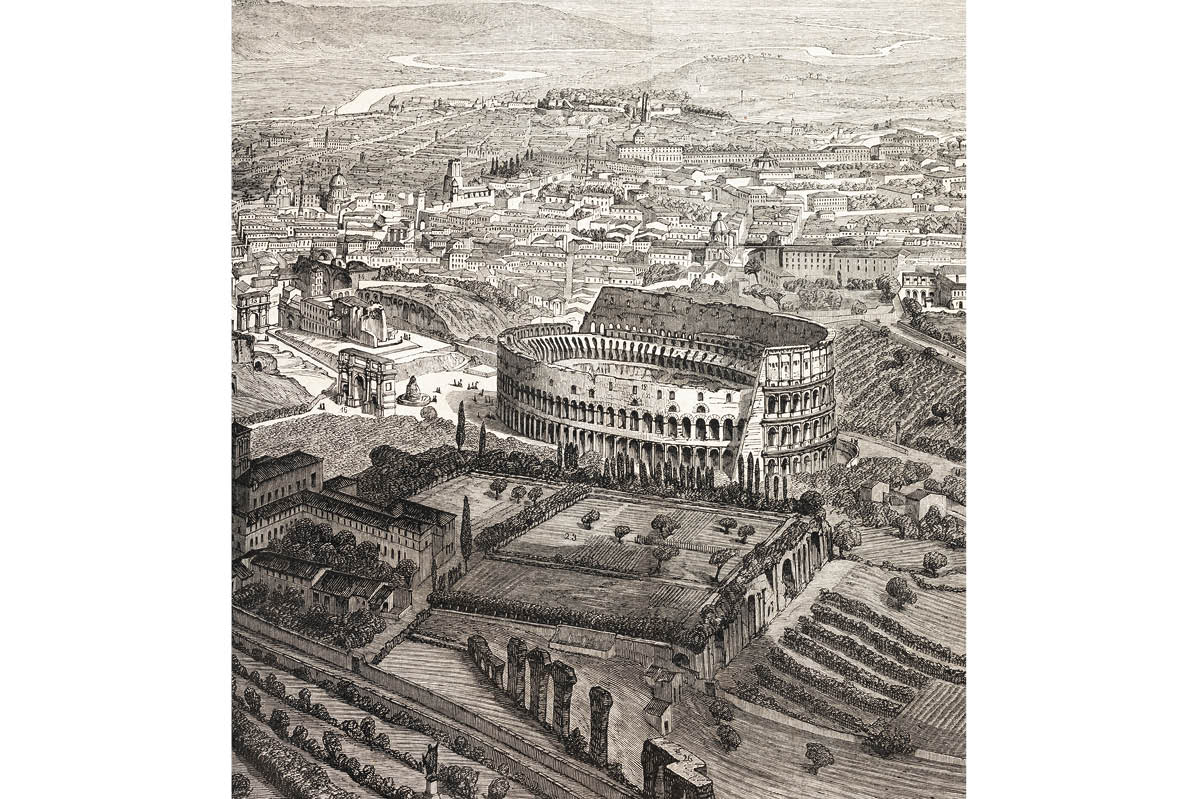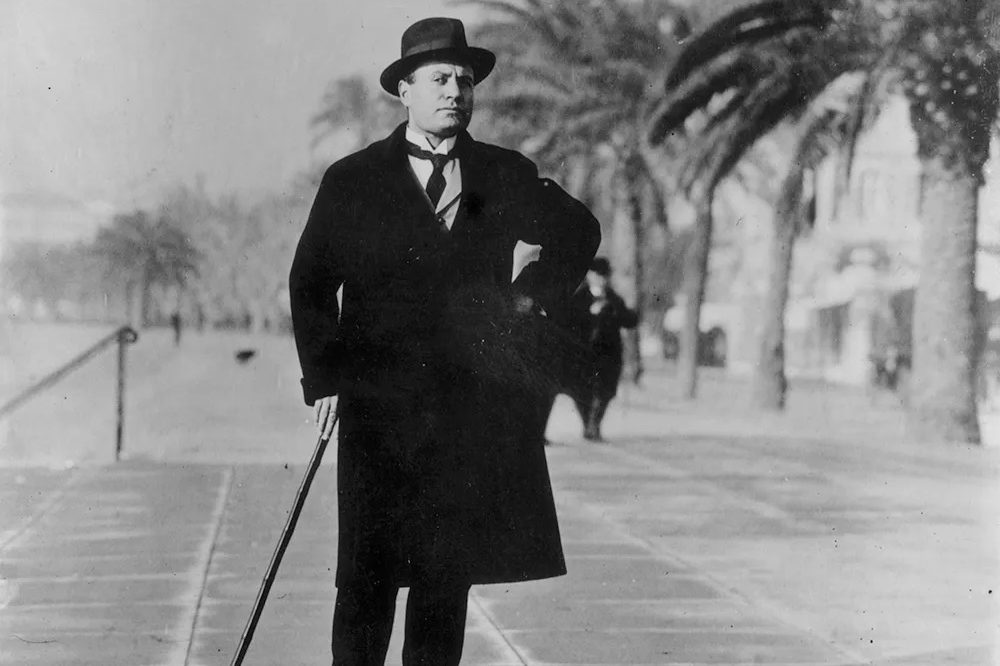To the Eternal City for the saddest of occasions, the funeral of the mother of Taki, seventeen, and Maria, fifteen, two of my four grandchildren. Assia was of noble birth and met my son John Taki at the Rosey school in Switzerland, where they both studied skiing and other such useful pursuits. They had a grand wedding at her ancestral home near Rome and went off on their honeymoon on my boat with twelve of their friends. After the two children were born they separated, but remained closer than they ever were while married. She fought for two years the ghastly leukemia that finally killed her at forty-one years of age.
Their friends from school were all there, some having flown over from America to say their last goodbyes. The death of someone so young and attractive is hard to put into words without sounding doleful; suffice it to say that we Greeks had it right long ago when we preached that whom the gods love they take early. The beautiful old church, the Catholic ceremony and a perceptive speech by a very learned man of God helped ease the pain one feels over the unfairness of it all. My boy asked me not to dwell on it, hence I will not. Suffice to say how much I love the Catholic church, its rituals and its ceremony. Hymns sung by a small choir were of heartbreaking grace and beauty, leaving no dry eyes anywhere.
Rome itself is one vast museum, desecrated by long lines of tourists marching up and down its narrow pavements looking at their phones and speaking mostly in Chinese and American. To describe the city as eternal and beautiful is a crude cliché, like calling Lily James enchanting, because Rome is Rome, unique but no illusion. It is without order or propriety, a lazy beauty that doesn’t take care of itself, a city fixated on romance and broken hearts.
Rome is the voice and spirit of Italy, a place where unspeakable crimes and cruelties have taken place throughout the ages, where unimagined splendors have been constructed and where Catholicism reigns supreme. Rome is seductive and mesmerizing, her spirit is Eros; she’s not fragile like Florence and Venice, not raw and carnal like Naples.
I walked down the Via del Corso early in the morning, turned right on Via Condotti to the Piazza di Spagna. All the old shops I used to know are gone, replaced by multinational stores and labels. History and culture now take second place to giant Dior and Prada signs that overshadow and, in a way, desecrate the surroundings. As if subliminally acknowledging this vulgarism, Keats’s house is empty of visitors and its windows only half-open. I stood there for about ten minutes and not a single person looked at the poet’s last dwelling; in fact, the crowds seemed to see the place but not take it in. I walked back to the Piazza Venezia, where the Austrian embassy was located back in 1914, and where my father-in-law was born in the very same edifice Mussolini used to address the mob.
My daughter gave a lunch after the burial at a wonderful restaurant with the quaint name of “Two Thieves.” We were about twenty and I sat with my old friend Leopoldo, a Napolitan nobleman whose father was a good friend of Galeazzo Ciano, the Duce’s son-in-law and foreign minister. History has not been kind to Ciano, and I find that puzzling. He did not want Italy to blindly follow Hitler, and paid for it with his life. Today, if I had stopped 1,000 or even 10,000 tourists in Rome, not a single one would have heard of Galeazzo Ciano.
But then very few would have heard of Cicero, Virgil, Horace, Ovid, Tacitus, Leonardo, Michelangelo, Bernini, Caravaggio or others of their kind. They would have heard of Mark Antony because Richard Burton played him in Cleopatra, although they would be confused about the Greek Queen Cleopatra because the crude Americans now show her to have been black, whereas Elizabeth Taylor’s agents claim that the actress was white. See how confusing it all gets? And yet, when I asked some gawkers if they had heard of Hadrian and Antinous, they had encyclopedic knowledge of the Roman emperor and his catamite. Ironically, the last time I used the word catamite it cost me a couple of hundred thousand pounds because the person I had called that sued me and I had to pay up. Antinous drowned in the Nile a couple of thousand years ago, so this time no cigar.
This article was originally published in The Spectator’s September 2023 World edition.

























